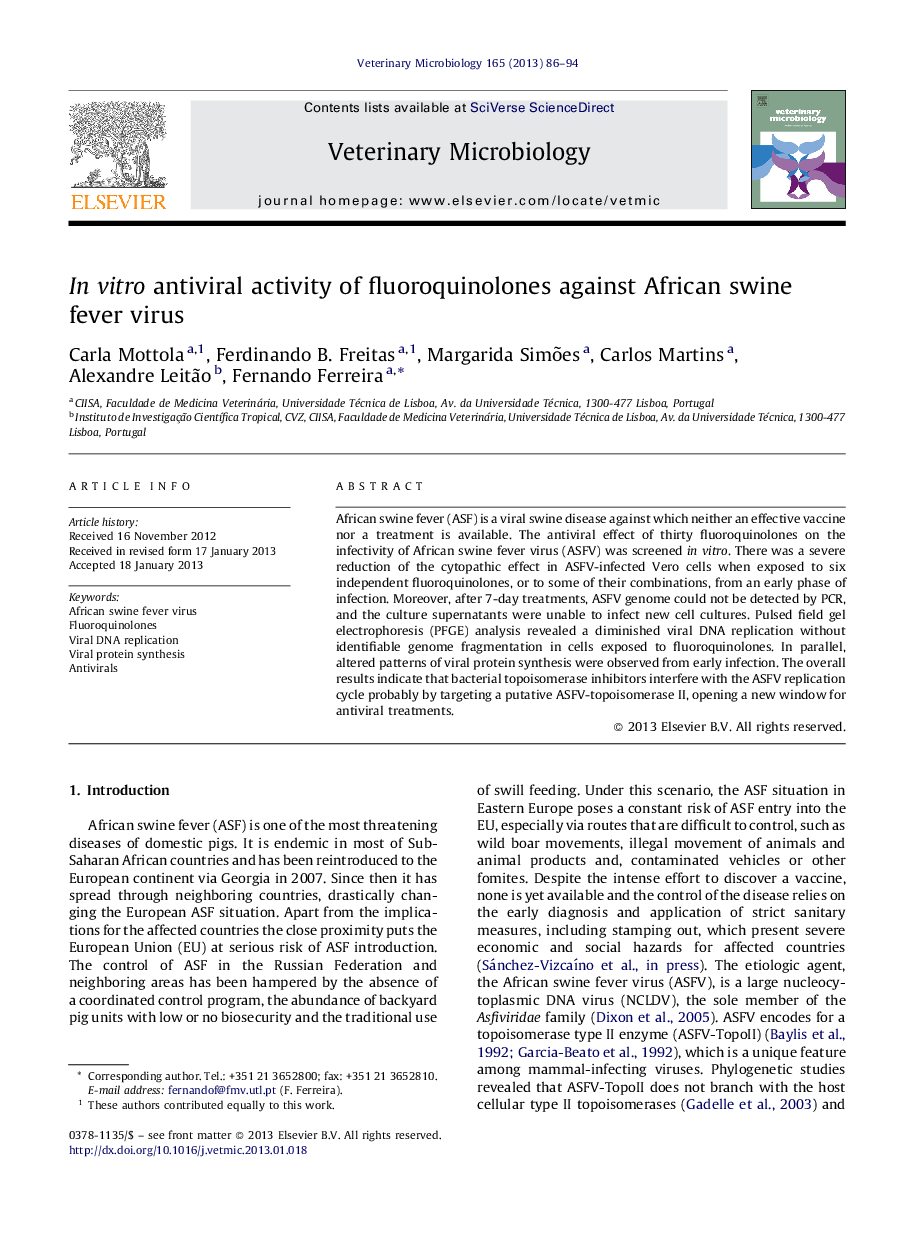| Article ID | Journal | Published Year | Pages | File Type |
|---|---|---|---|---|
| 2466724 | Veterinary Microbiology | 2013 | 9 Pages |
African swine fever (ASF) is a viral swine disease against which neither an effective vaccine nor a treatment is available. The antiviral effect of thirty fluoroquinolones on the infectivity of African swine fever virus (ASFV) was screened in vitro. There was a severe reduction of the cytopathic effect in ASFV-infected Vero cells when exposed to six independent fluoroquinolones, or to some of their combinations, from an early phase of infection. Moreover, after 7-day treatments, ASFV genome could not be detected by PCR, and the culture supernatants were unable to infect new cell cultures. Pulsed field gel electrophoresis (PFGE) analysis revealed a diminished viral DNA replication without identifiable genome fragmentation in cells exposed to fluoroquinolones. In parallel, altered patterns of viral protein synthesis were observed from early infection. The overall results indicate that bacterial topoisomerase inhibitors interfere with the ASFV replication cycle probably by targeting a putative ASFV-topoisomerase II, opening a new window for antiviral treatments.
